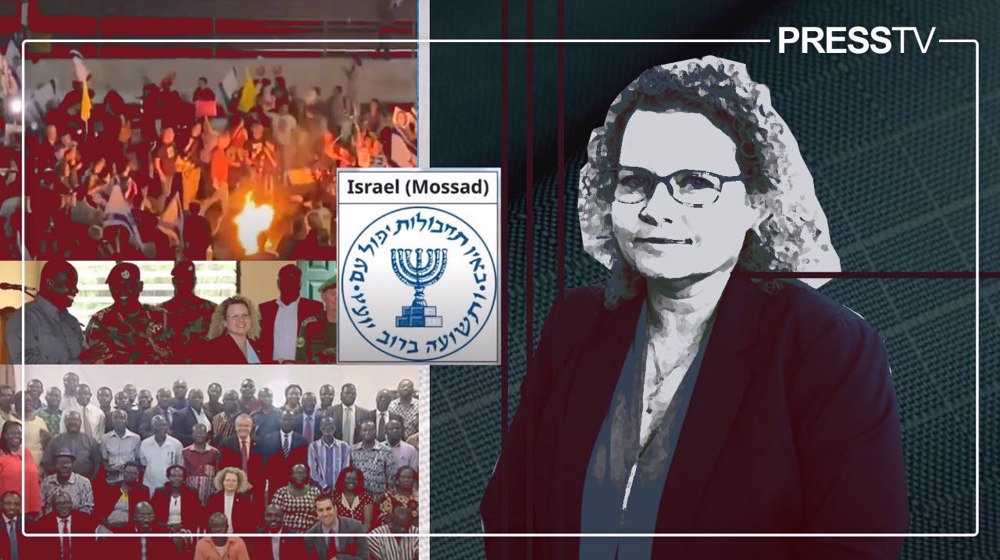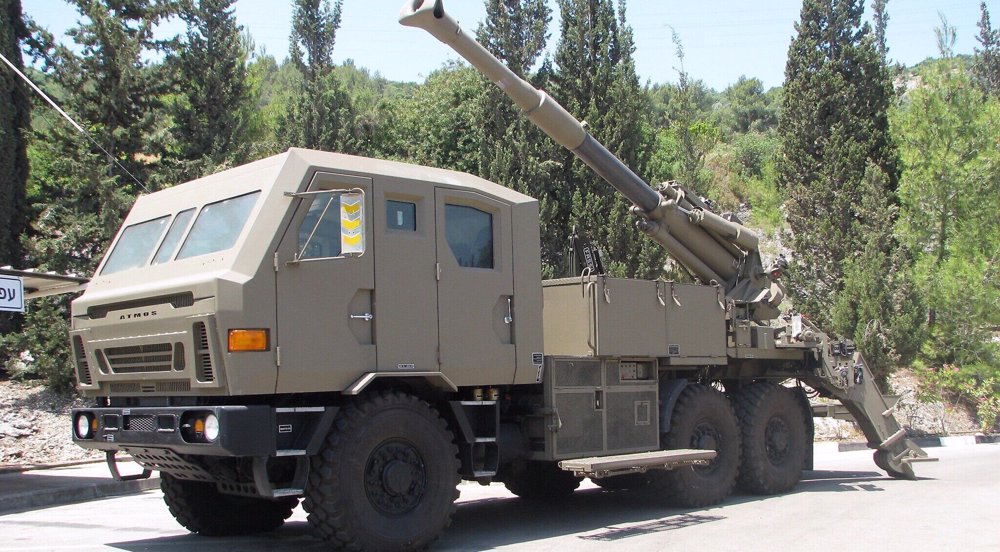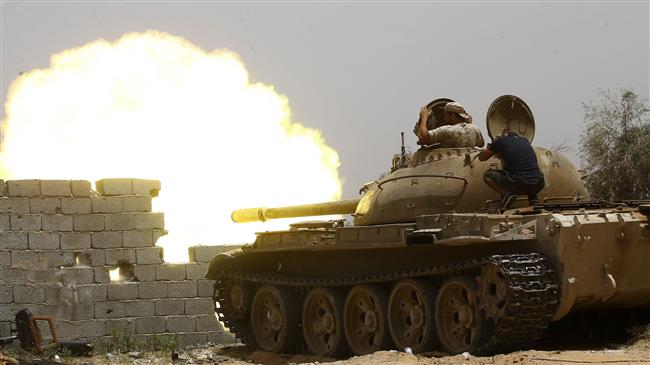Libya war opens new ground for Israeli-Arab connivance
As the UN and international humanitarian organizations are urgently calling for a halt in violence in Libya, Israel is providing arms and training to loyalists of renegade General Khalifa Haftar.
United Nations Support Mission in Libya (UNSMIL) on Thursday condemned Haftar's so-called Libyan National Army (LNA) for "indiscriminate bombardment of the capital Tripoli with rockets, many of which had landed on civilian neighborhoods, resulting in casualties".
In Tripoli, heavy bombardment could be heard into the evening on Wednesday. Following an attack last Monday, water supply was cut to more than two million people in Tripoli and nearby towns.
Now fierce battles are raging to the west of the Libyan capital.
Since mid-2014, Libya has been mired in civil war, pitting the UN-recognized Government of National Accord (GNA) in Tripoli against a rival administration in Tobruk, which is allied with General Haftar.
General Haftar led a deadly offensive to capture Tripoli in April last year, but his forces have been bogged down outside the city. The UN says hundreds have been killed and over 200,000 displaced since Haftar launched his battle for Tripoli.
According to London-based Middle East Eye news outlet, the conflict is fueled by increased foreign intervention and a constant supply of weapons in blatant violation of UN sanctions and an arms embargo.
In fact, the role played by Haftar is a result of the axis created in recent years, consisting of Egypt, the United Arab Emirates, Saudi Arabia and Israel.
The Israeli link is less well-known but still very important, because as the civil war stretches on, Tel Aviv is showing more interest in the war-torn North African country.
A report on Saturday said the UAE has paid the Israeli regime to deliver an advanced anti-aircraft missile system to the Libyan rebels under the command of Haftar.
It is the latest push to help Haftar’s forces overrun the Libyan capital and unseat the internationally-recognized government there, the report said.
Haftar and his forces have received backing from a host of regimes whose leaders view the Benghazi-based commander as Libya’s only alternative to other actors in the war-torn country.
In fact, the regimes in Israel, Egypt, France, Saudi Arabia and the UAE are trying to establish an Egyptian-style military dictatorship in Libya, years after the ouster of long-time dictator Muammar Gaddafi.
Libya plunged into chaos in 2011, when a popular uprising and a NATO intervention led to Gaddafi's ouster.
Haftar, who has American citizenship, was known to be very close to the CIA during his exile under Gaddafi. No wonder he is favored by the administration of President Donald Trump, even as it claims to be supporting international peace efforts.
The Libyan “file” is reportedly held by Israeli spy agency Mossad, which coordinates its operations and policies with Egypt's intelligence chief Abbas Kamel.
Between 2017 and 2019, Mossad envoys met on numerous occasions with Haftar in Cairo, and trained some of his key officers in war tactics, intelligence gathering and analysis, as well as control and command measures.
Mossad also helped Haftar's forces purchase night-vision equipment and sniper rifles.
The collusion illustrates the changing geopolitical dynamics of the region which have led Arab states to find themselves on the same boat with Israel.
In 2015 and 2016, Haftar met Mossad agents in Jordan in “strict secrecy.” One military source told The New Arab that the Israeli military began carrying out air raids in Libya in support of Haftar's forces as they launched their Tripoli blitz in 2014.
According to al-Araby al-Jadeed, Haftar held another meeting in Amman last year “to deepen security coordination between him and Israel” and that Haftar sought a stronger Israeli presence in southern Libya.
Haftar reportedly promised Israel “safe centers” in Libya’s desert. His connection with Israel is through Oren Hazan, a member of Israel’s Likud party who has Libyan roots.
In May, al-Jazeera Arabic published an investigation which uncovered Israeli support for Haftar’s offensive on Tripoli in early April.
A joint Emirati-Kazakh firm, Reem Travel, had an aircraft registered to its name which was flying between Egypt, Israel, and Jordan prior to arriving in LNA-controlled territory in Libya shortly before Haftar’s westward assault began, according to the Qatari TV.
Observers maintain that Israeli support for Haftar brings Israel into greater de facto alignment with the Arab states that have been backing the eastern commander for years.
The opportunities to secure money through lucrative weapons sales also help explain Israel’s interest in backing Haftar.
As a leading arms dealer, Israel has made billions by selling arms and leasing Israeli military advisers to different conflict-plagued countries in Africa, such as South Sudan.
Libya’s natural resources are a factor too. Constantly looking for oil-rich allies to sell it oil, Israel may expect to secure access to Libya’s petroleum after backing Haftar in the country’s ongoing civil war.
As the eastern commander’s forces have demonstrated, their capacity to take control of virtually all onshore oil fields in Libya means Israel likely sees a tacit alliance with Haftar as a prudent move in regard to its energy needs.

Exposed: Shani Cooper, Israeli spy who masqueraded as a diplomat in Africa

Morocco signs deal with notorious Israel’s Elbit to buy ‘battle-tested’ arms: Report

Protests in Morocco as US-flagged ship carrying arms to Tel Aviv docks at Tangier
VIDEO | Press TV's news headlines
VIDEO | 37th march against NATO, US military bases takes place in Spain’s Rota
VIDEO | Crisis talks in EU as Trump snubs trade negotiations
VIDEO | Palestinians go on general strike in protest at Israeli assaults
VIDEO | Pakistanis urge global action against Israel’s Gaza war crimes
VIDEO | US airstrike on Yemen’s Sana’a kills two women, two children
VIDEO | Israel drops bombs on ten Palestinian journalists in Khan Yunis
FM: Iran, US holding ‘high-level talks’ on Saturday in Oman












 This makes it easy to access the Press TV website
This makes it easy to access the Press TV website